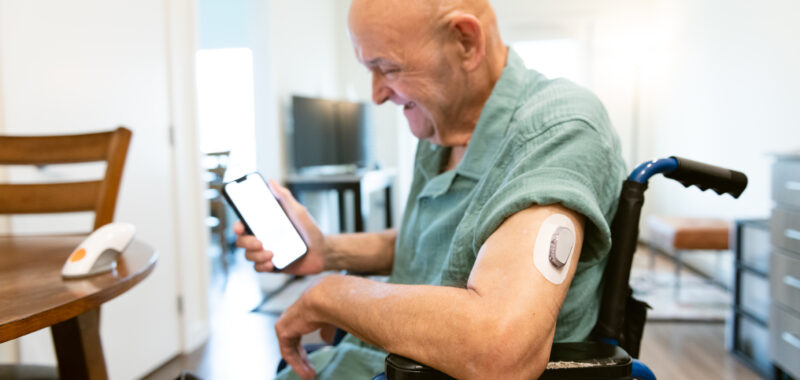DexCom faces several challenges, but GLP-1 drugs aren’t big problems for the company right now.
Going into 2024, DexCom‘s (DXCM 5.44%) shares were up a whopping 14 times over the last 10 years. The company’s continuous glucose monitoring (CGM) devices enjoyed tremendous demand from individuals with diabetes.
However, last week was the worst for DexCom stock since the company’s initial public offering (IPO) in April 2005. Shares of the medical device maker plunged over 40% following DexCom’s second-quarter update, as the company reported lower-than-expected sales and reduced its full-year guidance. Are Eli Lilly‘s (LLY 0.39%) and Novo Nordisk‘s (NVO 1.04%) drugs to blame?
Why Eli Lilly and Novo Nordisk are even in the picture
At first blush, it might seem odd to think that Lilly and Novo Nordisk had anything to do with DexCom’s sharp decline. So why are the two drugmakers even in the picture?
DexCom CEO Kevin Sayer said on the company’s Q2 earnings call that the number of new customers fell far short of expectations. This prompted J.P. Morgan analyst Robbie Marcus to ask if fewer patients with type 2 diabetes need CGM monitors because of GLP-1 drugs.
Neither Sayer nor Marcus referred to Lilly and Novo Nordisk by name on the Q2 call, but they didn’t have to. The two big pharma companies have the most successful GLP-1 drugs on the market right now. Lilly’s tirzepatide, which is a dual GIP/GLP-1 receptor agonist, is sold in the U.S. under the brand name Mounjaro for treating type 2 diabetes and under the brand name Zepbound for weight loss. Novo Nordisk’s GLP-1 receptor agonist semaglutide is marketed under the brand name Ozempic for treating type 2 diabetes and Wegovy for weight loss.
Losing weight can help delay or prevent the onset of type 2 diabetes. Sayer’s question reignited concern among some investors that Lilly’s and Novo Nordisk’s blockbuster drugs could negatively impact DexCom’s business.
Are Lilly’s and Novo Nordisk’s drugs behind DexCom’s woes?
At this point, DexCom’s challenges don’t appear to be related to Lilly’s and Novo Nordisk’s GLP-1 drugs. Sayer pointed instead to three problem areas.
First, DexCom has expanded and realigned its sales force. Sayer thinks the company didn’t build enough time into its planning for new sales reps to establish relationships with physicians they haven’t called on before — especially in the durable medical equipment (DME) channel.
Second, U.S. revenue per customer fell more than anticipated. A key factor in this decline is speedier rebate eligibility for DexCom’s G7 CGM than the company projected. Sayer noted that DexCom expected rebate eligibility for the G7 device to be twice as fast as G6, but it turned out to be three times faster.
Third, international sales were lower than DexCom expected. However, this was due mainly to greater penetration in type 1 diabetes markets in some regions. Sayer thinks type 2 diabetes presents a big international growth opportunity.
A potentially more serious threat to DexCom
The data available so far suggest that GLP-1 drugs won’t negatively impact CGM device usage. Actually, a couple of analyses indicate that CGM usage could increase modestly.
However, DexCom faces a more serious threat from another drugmaker. Vertex Pharmaceuticals (VRTX 0.58%) is developing islet-cell therapies that hold the potential to cure type 1 diabetes. The big biopharmaceutical company has two phase 1/2 clinical studies underway.
Most of DexCom’s revenue stems from individuals with type 1 diabetes rather than those with type 2 diabetes. Lilly’s and Novo Nordisk’s drugs might be molehill-size issues for the CGM maker at some point. But if Vertex’s potential type 1 diabetes cures are successful in clinical testing, they could become mountain-size challenges for DexCom.
JPMorgan Chase is an advertising partner of The Ascent, a Motley Fool company. Keith Speights has positions in Vertex Pharmaceuticals. The Motley Fool has positions in and recommends JPMorgan Chase and Vertex Pharmaceuticals. The Motley Fool recommends DexCom and Novo Nordisk. The Motley Fool has a disclosure policy.

